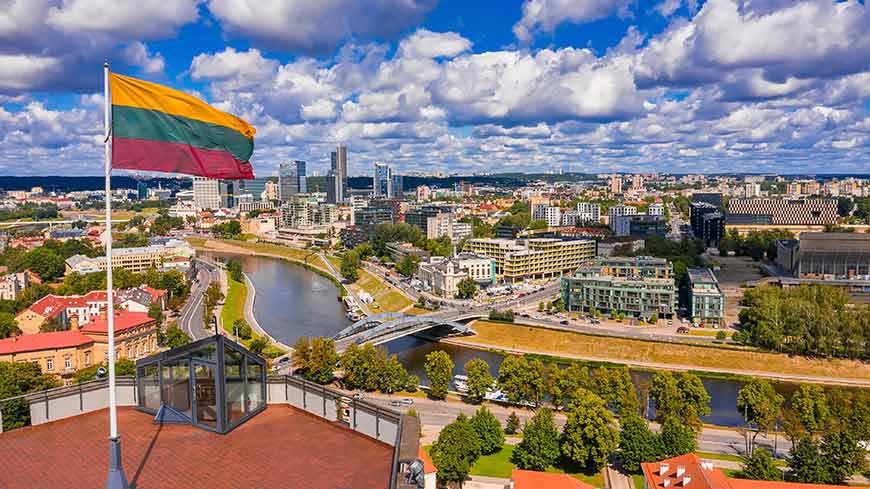The Council of Europe’s Group of Experts on Action against Trafficking in Human Beings (GRETA) has called on Lithuania to take further action against human trafficking, notably by improving the access of victims of trafficking to legal assistance and compensation, and by disassociating the identification and assistance of victims from the prospects of a successful investigation and prosecution.
In a report published today, GRETA’s experts note a number of positive developments since the previous evaluation of Lithuania in 2019, including amendments to the legislative framework relevant to combating human trafficking and the independent evaluation of the implementation of the national action plan against human trafficking for 2017-2019.
However, GRETA is concerned that the limited human and budgetary resources dedicated to the co-ordination of anti-trafficking action can have a negative impact on the implementation of national action plans.
It also urges the authorities to ensure that legal assistance is provided as soon as there are reasonable grounds for believing that a person is a victim of trafficking, before the victim has to decide whether or not to co-operate with the authorities or make an official statement.
GRETA welcomes the fact that a number of victims of trafficking have been awarded compensation from the perpetrators by criminal courts. However, the report stresses that additional steps to guarantee effective access to compensation for victims should be taken, in particular by making full use of the legislation on the freezing and forfeiture of assets, and by making State compensation accessible to all victims of trafficking, irrespective of their nationality or residence status.
In addition, the report notes that the number of investigations, prosecutions and convictions for human trafficking, in particular for the purpose of labour exploitation, has decreased. GRETA stresses the importance of proactively investigating human trafficking offences and making use of special investigation techniques and financial investigations.
The report also examines progress made on the implementation of previous GRETA recommendations.
In particular, GRETA welcomes the establishment of two pilot groups within the State Labour Inspectorate to combat human trafficking for the purpose of labour exploitation. However, there is no system for licencing recruitment and temporary work agencies, which are often involved in hiring foreign workers and posting them to other EU countries. GRETA calls on the authorities to ensure that sufficient staff and resources are made available to the State Labour Inspectorate to enable it to play a frontline role in the prevention and identification of trafficking for labour exploitation, and to regulate recruitment and temporary work agencies.
Furthermore, GRETA calls on the authorities to pay increased attention to detecting victims of trafficking amongst asylum seekers, and to increase their outreach work to identify child victims of trafficking.
Whilst welcoming the increased state funding for assistance programmes for victims of trafficking, GRETA urges the authorities to ensure the availability of appropriate and safe accommodation and assistance for all victims, irrespective of their residence status or willingness to co-operate in the investigation or prosecution.
Finally, GRETA calls upon the Lithuanian authorities to ensure that all foreigners for whom there are reasonable grounds to believe that they are victims of trafficking are offered a recovery and reflection period in line with the Convention.
Today’s report, which covers the period up until 17 November 2023, has been published together with the response of the Lithuanian authorities.
Facts and figures:
- Lithuania is primarily a country of origin of victims of human trafficking, but in recent years it has emerged also as a country of destination.
- The total number of identified victims in the period 2018-2022 was 148, of whom some 60% were women. Only 10 of the identified victims were children.
- More than 90% of identified victims were Lithuanian citizens and about half of them were exploited within Lithuania.
- Some 45% of the victims were trafficked for the purpose of sexual exploitation, 29% for forced criminality, 22% for labour exploitation, and the remainder for forced begging and forced marriage.




